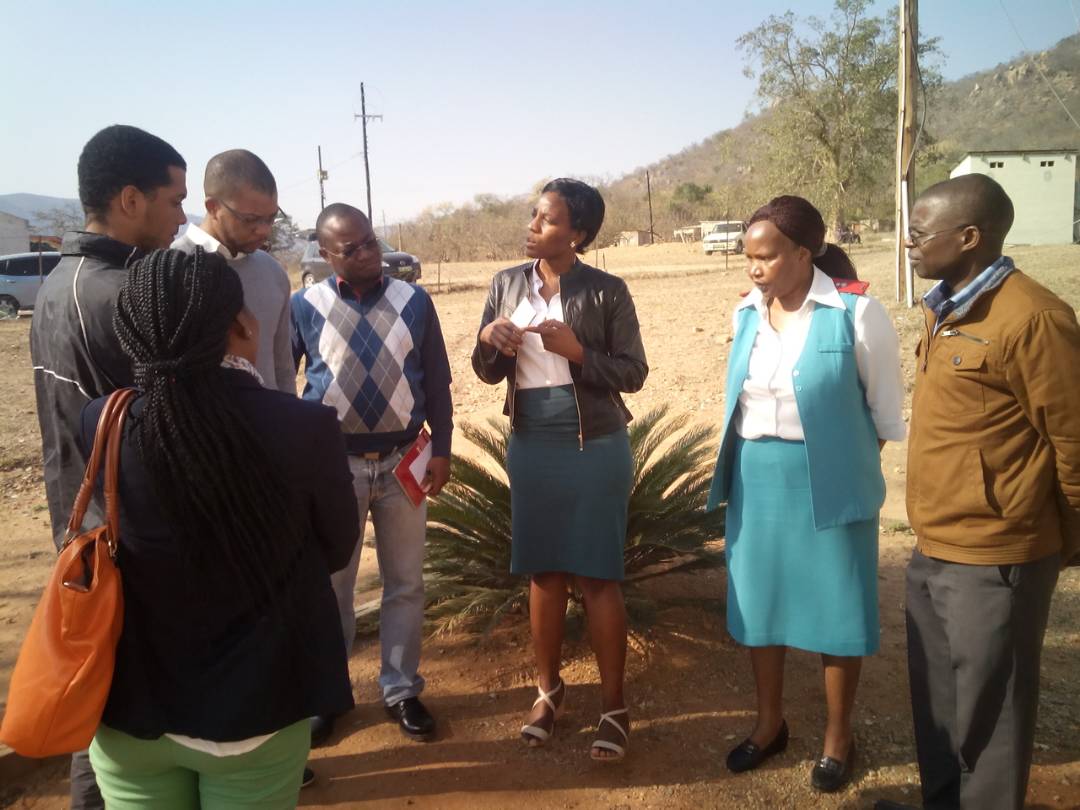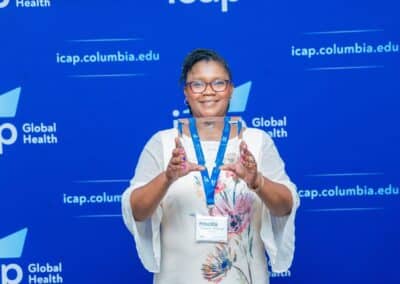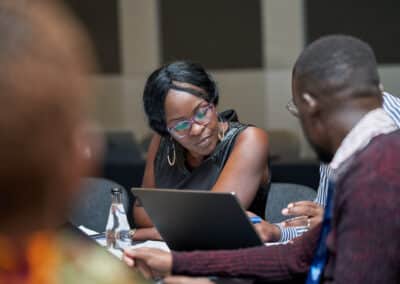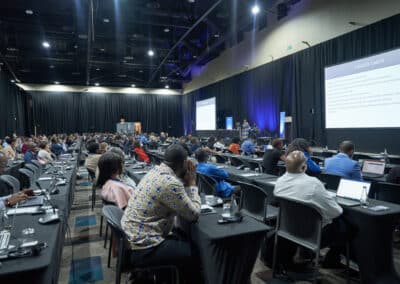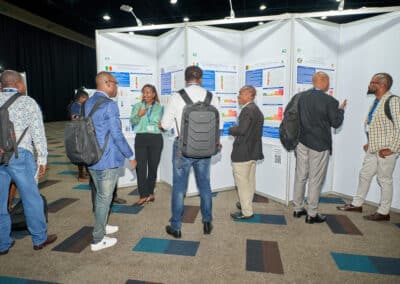Mbabane, Swaziland – Gathered around an outdoor workstation in Mbabane, Swaziland, a team of clinicians and program staff from Mozambique’s Ministry of Health reflected on what they had learned from observing Swaziland’s approach to differentiated service delivery (DSD).
Dr. José Tique, senior quality improvement advisor at the National HIV Program in Mozambique, talked about how he and his team plan to bring what they’ve learned about differentiated service delivery models from their neighbors back home.
The visit is part of the HIV Coverage, Quality, and Impact Network’s (CQUIN) south-to-south learning exchanges.
“In the last two days, we’ve seen many interventions, including early-morning ART refills, the community outreach model, fast-track services, and others,” said Dr. Tique. “The early-morning ART refill model stood out as something we want to include in our national guidelines and implement in Mozambique. It’s a simple model that allows patients who work or have privacy concerns to get to a health facility early, between 5:30 a.m. and 7:30 am, to pick up their medication.”
Swaziland is a much smaller country than Mozambique, but the consensus among the team here is that the interventions they’re implementing can be easily adapted. “This is one of the core functions of a learning network like CQUIN: that countries—no matter how different—can learn about DSD models and adapt them to their own settings,” said Dr. Peter Preko, CQUIN’s project director, who accompanied the Mozambique team on their visit.
Dr. Tique and his team also observed Swaziland’s outreach model, where a health facility team pays monthly visits to a rural community. The facility team, in agreement with the community, brings care directly to the community members who are enrolled in their facility. “It’s a very bold model because patients in the community essentially become a support group for one another,” said Dr. Tique. “We don’t have this in Mozambique, so we’re looking forward to potentially implementing this at a small scale in remote sites.”
Countries, no matter how different, can learn about DSD models and adapt them to their own settings.
-Dr. Peter Preko
While Dr. Tique and his team were learning from Swaziland, another team from Mozambique’s Ministry of Health, CDC and other implementing partners was in Malawi visiting the Balaka District Hospital Teen Club and the Lighthouse Clinic’s nurse-led community ART Program (NCAP), a community-based DSD model that integrates ART and non-communicable disease drug refills. Malawi’s teen club approach is an example of innovative DSD for adolescents living with HIV (ALHIV). To date, more than 9,300 ALHIV have been enrolled in 135 teen clubs in 26 of Malawi’s 28 districts.
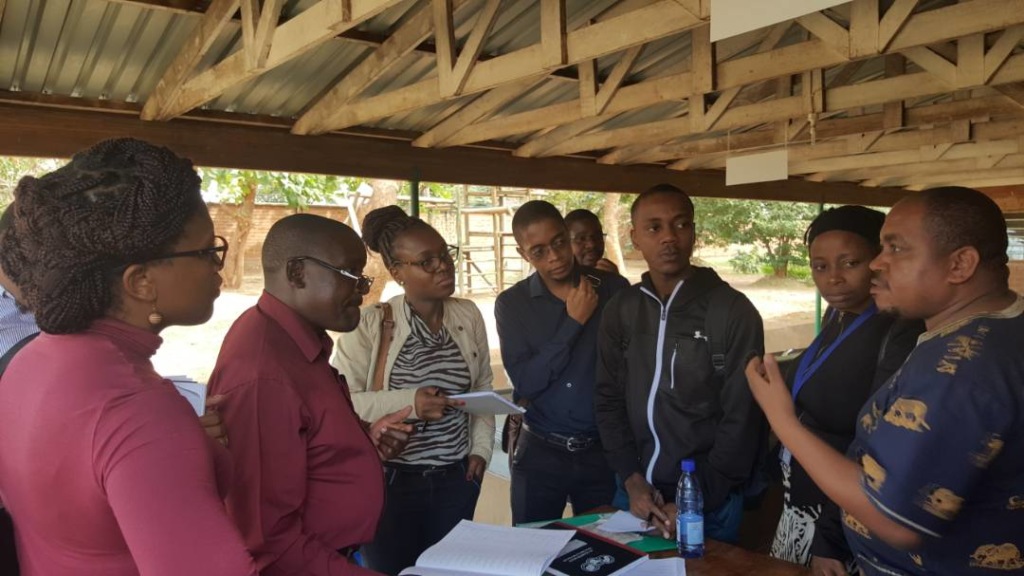
A second team from Mozambique speaks with representatives from Malawi after visiting Balaka District Hospital Teen Club.
These visits are just the beginning of what will eventually become a robust network of south-to-south exchange,” said Dr. Preko. The two teams from Mozambique will regroup and share what they have learned from Swaziland and Malawi. They will then present their findings to colleagues at the Ministry of Health, and plan next steps for implementation of these novel models of care.
This story is part of a series focused on the evolution of the CQUIN network, and countries’ progress in improving differentiated service delivery. To follow this story and others, sign up for the network’s monthly newsletter.


